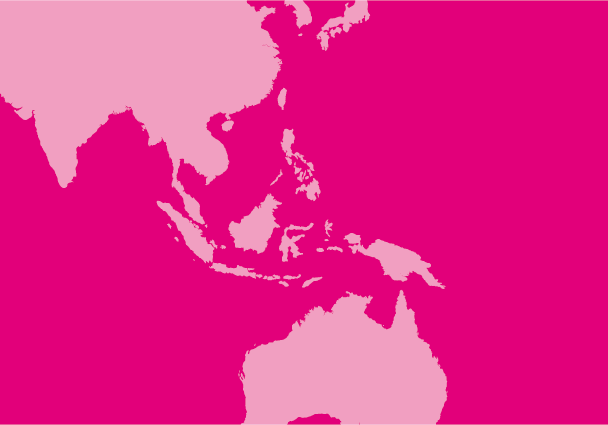
Mar 20, 2014 | News
Thailand’s caretaker government must remove emergency measures throughout the country following the lifting of the Emergency Decree in the capital Bangkok and its surrounding provinces this week, the ICJ said today.
On 18 March, the caretaker government voted to lift the Emergency Decree (effective 19 March) that had been in place in Bangkok and surrounding provinces since 21 January 2014 in response to protests led by the People’s Democratic Reform Committee (PDRC).
At least 20 people have died in protest-related violence and hundreds have been injured.
The Emergency Decree was replaced by the Internal Security Act (ISA), which also does not fully comply with international standards, but provides better remedies for victims of human rights violations than the Decree.
“The imposition of the Emergency Decree creates an environment conducive to abuse of power and human rights violations such as arbitrary arrest and detention, torture and enforced disappearance,” said Sam Zarifi, ICJ’s Regional Director for Asia and the Pacific. “Lifting the Emergency Decree in Bangkok is a positive step, but it is crucial that the authorities remove the Emergency Decree and other measures of emergency rule, including martial law, that are in force in all or parts of at least 30 of Thailand’s 77 provinces.”
These measures should be replaced by law and action that are consistent with international human rights standards, Zarifi said, adding that martial law should not be used as a political tool.
The caretaker government must respond to demonstrations, unrest and emergencies in a manner which complies with its obligations under the International Covenant on Civil and Political Rights (ICCPR), and other international standards, including the Code of Conduct for Law Enforcement Officials, adopted by the UN General Assembly in 1979, and the Basic Principles on the Use of Force and Firearms by Law Enforcement Officials, adopted by the UN Congress on the Prevention of Crime and Treatment of Offenders in 1990.
These standards set out the circumstances in which resort to necessary and proportional force may be lawfully exercised. Article 8 of the Basic Principles on the Use of Force and Firearms states that “exceptional circumstances such as internal political instability or any other public emergency may not be invoked to justify any departure from these basic principles.”
In order to safeguard the rule of law and enhance the protection of human rights in Thailand, the ICJ calls on the caretaker government to repeal the Emergency Decree and other emergency measures including martial law, and to ensure accountability for violent acts through the thorough and effective investigation of criminal acts and prosecution of those reasonably suspected of committing them, in the course of fair, human rights-compliant criminal proceedings.
CONTACT: Sam Zarifi, ICJ Asia-Pacific Regional Director, (Bangkok), t:+66 807819002, e-mail: sam.zarifi(a)icj.org
Craig Knowles, ICJ Media & Communications, (Bangkok), t:+66 819077653, e-mail: craig.knowles(a)icj.org
For further reading on ICJ’s work on emergency laws in Thailand see: Thailand’s Internal Security Act, Risking the Rule of Law? (2010) https://www.icj.org/thailands-internal-security-act-risking-the-rule-of-law/ Implementation of Thailand’s Emergency Decree (2007) https://www.icj.org/thailand-implementation-of-thailand%C2%B4s-emergency-decree/ More Power, Less Accountability: Thailand’s New Emergency Decree (2005) https://www.icj.org/more-power-less-accountability/
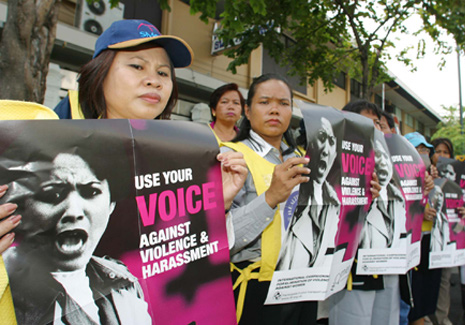
Nov 15, 2013 | News
The ICJ and Amnesty International urge the Association of Southeast Asian Nations (ASEAN) to increase efforts to protect the rights of women and children.
ASEAN must act in light of the newly adopted Declaration on the Elimination of Violence against Women and Elimination of Violence against Children, which was recently adopted at the 23rd ASEAN Summit in Bandar Seri Begawan, Brunei Darussalam, the rights groups said.
The Declaration states the commitment of all 10 ASEAN member states to further “prevent and protect [women and children] from and respond to all forms of violence, abuse and exploitation of women and children particularly for those who are in vulnerable situations”.
AI and ICJ welcome this commitment, which allows for no exceptions or discrimination, while expressing concern that no explicit mention was made of lesbian, bisexual, transgender and intersex women and children in the non-exhaustive list of those requiring particular protection from discrimination and violence that follows this general statement.
The Declaration details a wide array of measures that Member States should take, within “a holistic, multi-disciplinary approach”, in order to eliminate violence against women and children.
These include changes to legislation, policies and practices; training and education; investigation, prosecution, punishment and where appropriate rehabilitation of perpetrators; creating an enabling environment for the participation of women and children; and the development of strategies for the elimination of harmful practices.
AI and ICJ pointed out that the Declaration suffers from some serious deficiencies in substance, as well as in the process of its adoption.
In terms of process, most ASEAN Member states failed to meaningfully consult with national civil society in the elaboration of the Declaration.
Only Philippines, Indonesia, Thailand and Vietnam held consultations, which in some of these states were limited.
This problem was compounded once the ACWC had finalised its draft, as the discussions and approval processes thereafter were completely shrouded in secrecy.
This final draft was never circulated to women’s and children’s groups in the region, despite written requests from several civil society groups calling for its release.
This unacceptable lack of transparency violates international guidelines on consultation with civil society, the ICJ and AI stressed.
AI and ICJ also deplore the fact that the Declaration reaffirms the General Principles of the discredited ASEAN Human Rights Declaration (AHRD), some of which are wholly incompatible with international law and allow for impermissible restrictions on human rights.
The two organizations reiterate their call to revise the AHRD, particularly by repealing or substantially amending General Principles 6-8, so as to bring it into line with international human rights law and standards.
AI and the ICJ further underline that international law allows no justification for violence against women and children and requires States to comply with their obligations to prohibit, prevent, investigate, punish and ensure reparations for victims of such violence in all circumstances.
Nothing in the Declaration may be construed to circumvent ASEAN Member States’ obligation to eliminate “prejudices and customary and all other practices” as well as “harmful and discriminatory traditional practices” that amount to, result in or perpetuate violence against women and children.
In addition, a significant omission of the Declaration is the lack of a reference to economic barriers to protection, assistance and justice faced by women and children in situations of violence.
ASEAN Member States should ensure that financial means do not impede access to justice, particularly of those living in poverty.
The rights groups also highlighted that ACWC rejected the proposal from women and children groups to have two separate declarations.
Although both women and children share similar vulnerabilities necessitating for additional protection, there remains certain rights, approaches and differing needs that are specific to each groups that could only be adequately addressed by having two separate declarations.
AI and the ICJ stated that ASEAN’s determination to end violence against women and children will ultimately be measured only by effective implementation of the Declaration in a manner which complies with their international obligations.
The Declaration tasks the ACWC to promote the implementation of the Declaration and review its progress.
AI and the ICJ call on the ACWC to actively implement this mandate, and for ASEAN Member States to cooperate with the ACWC in fulfilling this role.
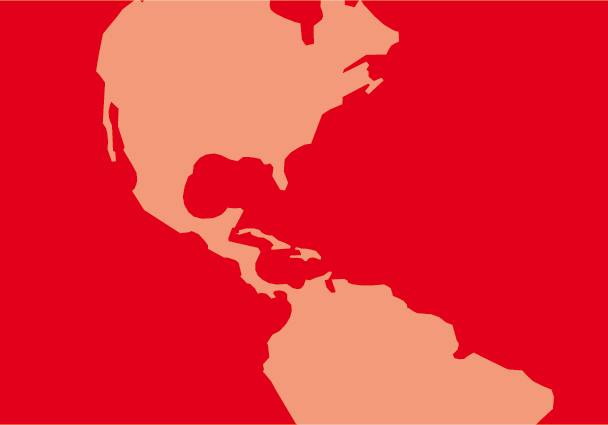
Aug 29, 2013 | News
También la CIJ solicita audiencia temática a la comisión interamericana de derechos humanos.
La CIJ condenó los ataques que se han venido dando en contra de defensores de derechos humanos en Guatemala.
Por tal razón, conjuntamente con organizaciones sociales y campesinas como el Comité de Unidad Campesina (CUC), Asociación para la Promoción y el Desarrollo de la Comunidad (CEIBA), WAQIB´KEJ y otras organizaciones sociales de Guatemala, solicitaron a la Comisión Interamericana de Derechos Humanos una audiencia temática sobre el fenómeno de la criminalización de la protesta social el pasado viernes.
El objeto de la misma es, además de proporcionar información sobre el fenómeno de la criminalización de la protesta social, identificar patrones de represión en contra de líderes sociales en Guatemala.
Según la CIJ, este fenómeno es un claro retroceso del proceso democrático de Guatemala.
En efecto, se han identificado patrones de represión estatal, utilizando el derecho penal para reprimir las libertades de pensamiento, expresión y reunión de sus actores.
En este contexto, la CIJ nota con preocupación varios patrones de ataque en contra de defensores y defensoras de Derechos Humanos de Guatemala, que preocupan profundamente y que se expresan en detenciones ilegales, campañas de difamación y acusaciones falsas, ataques directos que han quitado la vida a cuatro periodistas en los últimos meses y falta de investigación pronta y eficiente, que identifique quien está detrás de estos hechos y si hay presencia de estructuras criminales organizadas que cometen estos crímenes para evitar la defensa de los derechos de los Pueblos Indígenas y de sus territorios.
Ramón Cadena, Director de la CIJ para Centroamérica expresó: “Pedimos a las autoridades del Sistema de Justicia que investiguen estos ataques. La impunidad de estos hechos sigue siendo alarmante. Por esta razón, la Organización de las Naciones Unidas debería nombrar cuanto antes al futuro representante de la Comisión Internacional contra la Impunidad (CICIG), quien debería ser un Fiscal con experiencia para continuar la lucha en contra de cuerpos ilegales y aparatos clandestinos de seguridad.”
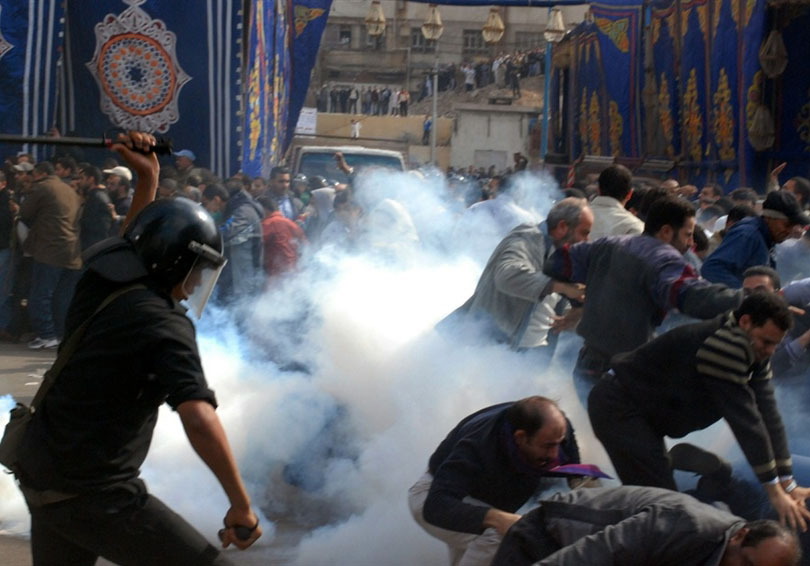
Jul 29, 2013 | News
The ICJ today called on the Egyptian authorities to put an end to its use of unlawful and lethal force as it pursues an excessive and violent crackdown on protesters.
The ICJ also called on the authorities to promptly, impartially and fully investigate the allegedly unlawful killings of more than 80 people who were reportedly fired on by security forces in a rally in Cairo in support of ousted President Mohamed Morsi on 27 July.
Large-scale rallies were held when the head of the armed forces, General Abdel Fattah El Sisi, called on citizens to grant the military a mandate to fight “terrorism and violence”.
The ICJ is also concerned at reports indicating that the government may be poised to grant arrest powers to the Egyptian Armed Forces.
“The Egyptian authorities must promptly, fully, and impartially investigate the actions of the security of forces, involving alleged unlawful killings and ill-treatment of protesters with a view to holding accountable those responsible,” said Wilder Tayler, ICJ Secretary General. “The authorities must also ensure that, in accordance with international law and standards, security officers exercise force only in a proportionate manner and may use lethal force only when strictly unavoidable to protect lives.”
Since the unlawful seizure of power by the Army and the ouster of President Morsi, more than 130 persons said to be supporters of the former President have reportedly been killed as a result of the unlawful and disproportionate use of force by security forces, including firing with live ammunition.
The ICJ is concerned that the ongoing attacks on protesters, and the impunity that continues to prevail over them, will further contribute to the deterioration of the rule of law and the human rights situation in Egypt.
To prevent such deterioration, the Egyptian Army must carry out its security functions so as to protect the enjoyment and legitimate exercise of human rights by all. It must also ensure a quick and steady transition of power to a legally constituted civilian authority.
Contact:
Said Benarbia, ICJ Senior Legal Adviser of the Middle East and North Africa Programme, tel: 41 22 979 38 17, e-mail: said.benarbia(a)icj.org
Photo by Samaa TV
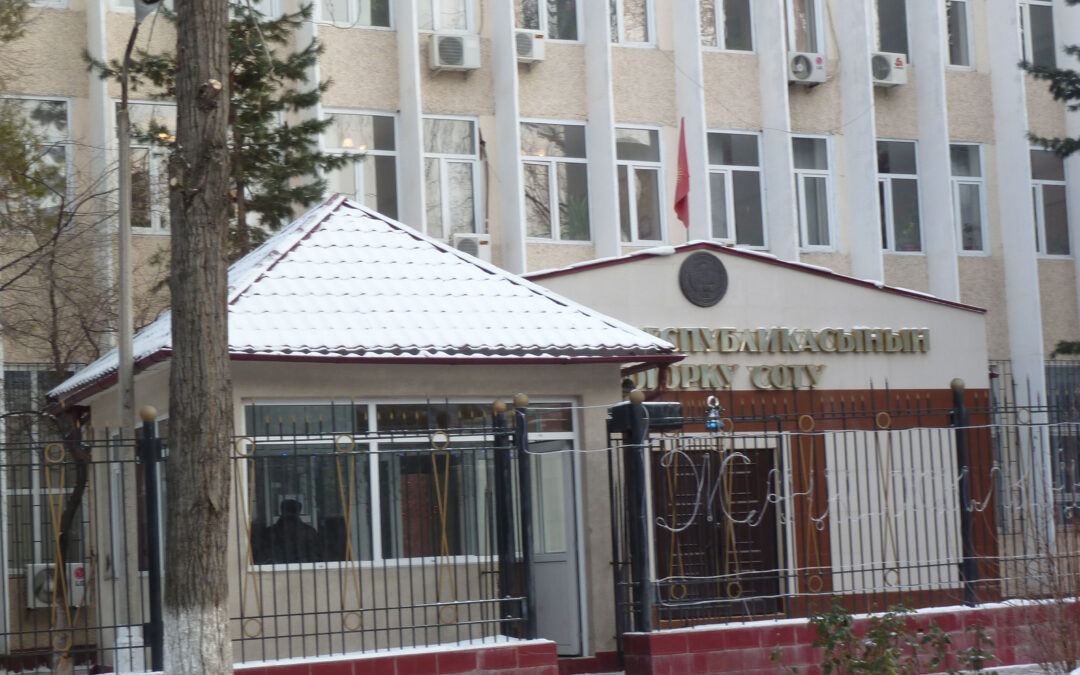
Apr 2, 2013 | News
The ICJ today expressed serious concern at the physical assault of lawyers Tatiana Tomina and Ulugbek Usmanov at a Supreme Court hearing in Bishkek this morning.
The ICJ called on the Kyrgyzstan authorities to take effective measures to protect the physical security of lawyers as well as all other parties in court proceedings, and to hold accountable those responsible for today’s attacks.
The assaults took place during the Supreme Court hearing in the case against Shamshidin Niyazaliyev, who was recently acquitted of charges relating to the outbreak of widespread ethnic violence in the South of Kyrgyzstan in June 2010. During the hearing, several persons present in the courtroom subjected the two lawyers and the mother of Shamshidin Niyazaliyev to beatings. No immediate steps were taken by the Court to prevent the beatings, which continued for several minutes before security officers intervened.
“There has been a pattern of serious attacks on lawyers in Kyrgyzstan, but this is the first time that the authorities have failed to guarantee the security for lawyers at the Supreme Court”, Róisín Pillay, Director of the ICJ Europe Programme said today. “These attacks violate the international obligations of the Kyrgyz authorities to ensure the security of lawyers and to protect the right to a fair trial. No justice is possible unless all the parties to the judicial process are fully protected and lawyers are able to discharge their functions without harassment, or attack”.
International standards, including the UN Basic Principles on the Role of Lawyers, require that “where the security of lawyers is threatened as a result of discharging their functions, they shall be adequately safeguarded by the authorities”.
It is now essential for the credibility of the judicial system that today’s assaults are thoroughly and independently investigated and that those responsible are brought to justice, the ICJ emphasised.
According to lawyer Tatiana Tomina, the attacks began when about 15 men and women started insulting, pushing and punching the lawyers as they walked into the courtroom. The defendant’s mother, the only apparent supporter of the defendant allowed into the Court, was kicked and punched in the head. When the defence lawyers began to read a statement, several women attacked Tatiana Tomina and attempted to take documents from her by force. The panel of presiding judges did not attempt to prevent the beatings and security officers only appeared after several minutes had passed. Tatiana Tomina and the mother of the defendant were able to escape through the back door of the court. However Ulugbek Usmanov was unable to escape and suffered more serious injuries.
The Court adjourned the hearing for two hours. After the hearing resumed, only a few security persons were present in the courtroom and the defendant’s mother did not attend this part of the hearing. Following five minutes of deliberations the Supreme Court overturned the earlier acquittal.
Reportedly, at the hearing, defence statements were constantly interrupted, lawyers were insulted and prevented from speaking in defence of their clients and the Court refused to call any of the five witnesses of the defence. In her comments to the ICJ, lawyer Tatiana Tomina stated: “[i]n three years nothing has changed either in terms of the attitude towards lawyers or in terms of the investigation of criminal cases, which has not improved at all.” The ICJ has previously raised concerns at violence against lawyers in cases related to ethnic disturbances in the south of Kyrgyzstan in 2010.
CONTACTS
Róisín Pillay, Director, ICJ Europe Programme, roisin.pillay@icj.org
Temur Shakirov, Legal Adviser, ICJ Europe Programme, temur.shakirov@icj.org
ICJ condemns assaults on lawyers in Supreme Court (Full Text in Russian, PDF)









